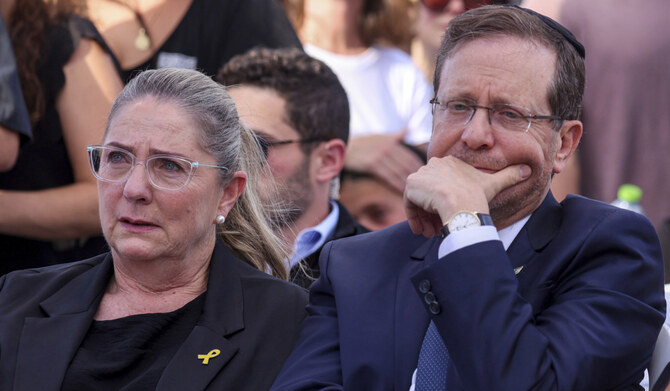ANKARA: Turkish President Tayyip Erdogan said on Tuesday that Turkiye refused to allow Israeli President Isaac Herzog to use its airspace to attend the COP climate summit in Azerbaijan, highlighting Ankara’s stance amid tensions with Israel.
“We did not allow the Israeli president to use our airspace to attend the COP summit. We suggested alternative routes and other options,” Erdogan told reporters at the G20 Summit in Brazil.
Herzog ended up canceling the visit.
“In light of the situation assessment and for security reasons, the President of the State has decided to cancel his trip to the Climate Conference in Azerbaijan,” the Israeli presidency said. Israel launched a devastating war against Hamas in Gaza a year ago after the Palestinian Islamist group’s deadly cross-border attack.
Turkiye withdrew its ambassador in Israel for consultations after the Gaza war broke out, but has not officially severed its ties with Israel and its embassy remains open and operational.
“But whether he was able to go or not, I honestly don’t know,” Erdogan said on Herzog’s visit to Baku.
“On certain matters, as Turkiye, we are compelled to take a stand, and we will continue to do so,” he said.






















